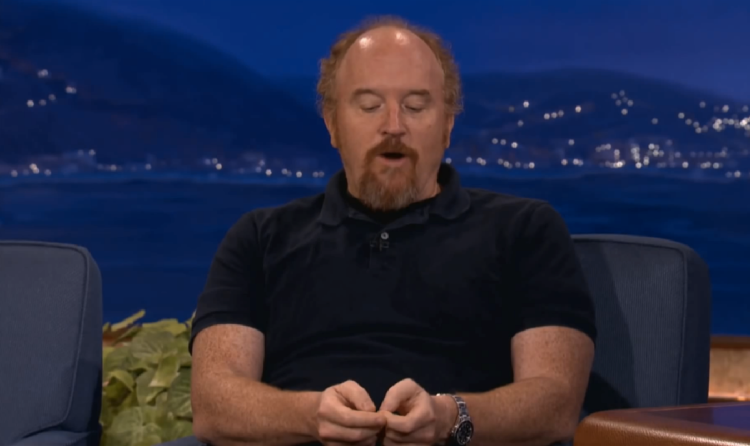Louis C.K. is a gifted orator, and like all gifted orators, he’s really good at saying things that are easy to accept at face value.
I’ve spent a lot of time over the past few days thinking about C.K.’s recent appearance on Conan O’Brien’s late-night show, which has been called “impressively existential,” and “frighteningly on the money.”
In case you missed it (which is unlikely, if you’re using the Internet right now), C.K.’s argument is that not only do smartphones disrupt our ability to sit by ourselves and be alone, they also make it impossible to be compassionate to one another. “I think these things are toxic, especially for kids,” he said.
So, no — the argument is nothing new.
Still, at first glance, C.K.’s logic is self-evidently sound, at least to anyone who sees themselves in videos like this one or has books like Nicholas Carr’s The Shallows and Sherry Turkle’s Alone Together on their bookshelves. But the logic is too neat, too convenient, and appeals far too much to the very kinds of people C.K. often makes fun of. If you think smartphones are the enemy, perhaps you’re thinking a bit too much about smartphones.
Whenever this sort of thing pops up, I point to Socrates, who, despite being one of history’s greatest philosophers, also railed against the newfangled technology of his time: writing. As he says in The Phaedrus:
This discovery of yours will create forgetfulness in the learners’ souls, because they will not use their memories; they will trust to the external written characters and not remember of themselves. The specific which you have discovered is an aid not to memory, but to reminiscence, and you give your disciples not truth, but only the semblance of truth
Sound familiar?
I’m not arguing that C.K. is a modern-day Socrates (though that is a fun comparison). My point is that none of what he argues is new to smartphones (or the Internet, or television, or writing your shopping list down instead of remembering it). People have always worried that a new technology will change some fundamental aspect of humanity and how we interact with each other and see ourselves. And, last I checked, we’re still roughly the same beings — albeit with significantly more advanced toys.
Everything’s … amazing?
What’s particularly interesting here is how different C.K.’s anti-smartphone rant is from his now-infamous observation that “everything’s perfect and no one’s happy.” Here we have a technology that connects us to much of the world’s information and people, and the thing we’re worried about is whether the privileged few of us who have access to this amazing technology are using it too much? It’s the kind of first-world navel-gazing that we should all be fighting against, not embracing.
Then again, maybe it’s not surprising. Worrying about whether our smartphones are dehumanizing us is, at its core, not all that different from worrying about whether all of this food we have around is makings us fat or whether our unlimited running water is properly filtered. Perhaps it’s just human nature to obsess over our overabundance.
But the truth is that C.K. has indeed injected himself into a layer of cultural doubt about the technologies that we’ve so actively embraced. And maybe that’s a good thing. I don’t know. But what I do know is that there’s always reason for skepticism when a comedian’s anti-technology polemics are shared via the same mediums he’s speaking out against. (If you watched that video on smartphone, you’re a part of the problem.)
Smartphones as the cure and the poison
That, for me, is the real takeaway here: Louis C.K., despite not being the biggest fan of these gizmos we carry around, has benefited to an absurd extent from that very technology: His comedy is entertaining, easily digestible, and plugs into some popular partisan viewpoint — meaning that people can’t help but share it.
More, C.K. back in 2011, C.K. released his Live at the Beacon Theater standup special exclusively via his website. A year later, he used the Internet to sell ticket to his tour directly to fans. C.K. owes about as much to technology as the rest of us do.
Smartphones may be “toxic,” but for Louis C.K’s career, the poison is also the cure.
VentureBeat's mission is to be a digital town square for technical decision-makers to gain knowledge about transformative enterprise technology and transact. Learn More

